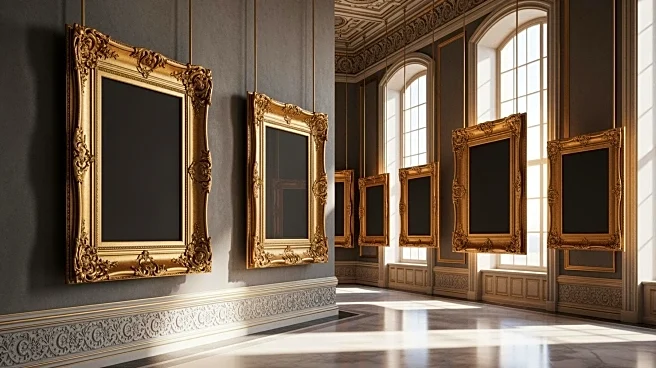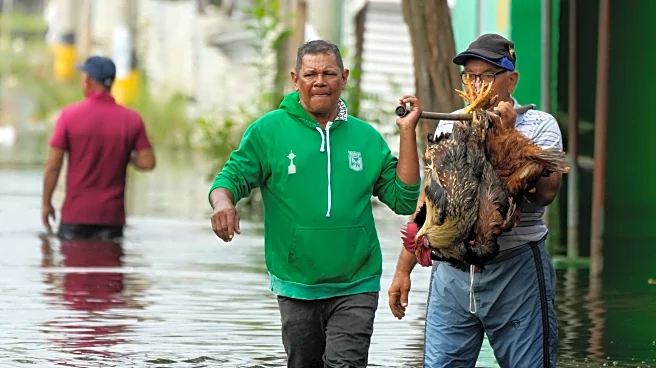What's Happening?
The Louvre Museum in Paris, renowned as the most-visited museum globally, was forced to close on Sunday following a daring robbery. According to France's culture minister, Rachida Dati, the incident occurred
early in the morning when three masked thieves executed a heist at the museum. The thieves, who remain at large, arrived on high-powered scooters and accessed the museum from the Seine quayside, where construction work was underway. They used an angle grinder to break windows and entered the Apollon Gallery, targeting the Napoleon and French Sovereigns’ galleries. The robbers stole nine items from the imperial jewelry collection, including a tiara, a brooch, and a necklace. Notably, the famed Regent diamond, historically worn by French monarchs, was not taken. The Paris prosecutor's office has launched an investigation into the theft, which is being treated as an organized crime.
Why It's Important?
The theft at the Louvre highlights significant security challenges faced by cultural institutions worldwide. The stolen items, part of the imperial jewelry collection, are not only of immense historical value but also represent a substantial cultural loss. This incident underscores the vulnerability of even the most prestigious museums to organized crime, potentially prompting a reevaluation of security measures in museums globally. The theft could also impact the museum's reputation and visitor confidence, as the Louvre is a major tourist attraction. The investigation into the theft may lead to increased scrutiny on the illegal trafficking of cultural goods, a persistent issue in the art world.
What's Next?
The Louvre Museum will remain closed for the day as authorities continue their investigation. The Paris prosecutor's office is working with an investigative service specializing in illegal trafficking of cultural goods to track down the stolen items and apprehend the thieves. The museum's management and law enforcement agencies are likely to review and enhance security protocols to prevent future incidents. The outcome of the investigation could influence security policies in museums worldwide, potentially leading to more stringent measures to protect valuable collections.












